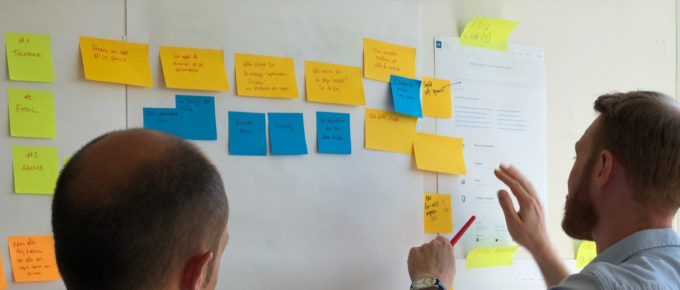How people experience working with you depends upon a number of factors. A big part of that is process. As I have written about extensively, process is important. It helps to coordinate, to deliver results, and to codify expectations and principles into guidelines that can be followed. Those benefits tend to be internal to an organization, however. Frustrations and unintended consequences can occur when those same processes bleed to the outside. For those who lead with process, consider this a cautionary tale.
The Elephant In Your Brain
We are all familiar with the expression “the elephant in the room.” It is something that I have come to expect and even seek out when facilitating others. The reality, though, is that we each have our own personal pachyderms that dutifully follow us through life and haunt our work. The longer that we put off doing things, the more that we defer problems and the longer that we avoid pursuing our goals and ambitions, the larger and more omnipresent becomes the grey mammoth in our grey matter. You can learn to make the elephant go away. First, though, you need to recognize it for what it is, and what it represents.
The Entropy of Systems
Many of us strive to get organized. A similar number of us struggle with how to actually do that. For me, it has been the on-going focus of more decades than I care to count, as I try to make sense of the reference materials in my life and organize them in ways that are meaningful, useful and above all accessible. The problem with all systems is that they are subject to entropy; they will decline into disorder over time unless they receive proper care and feeding. Exploring what that looks like is an interesting challenge.
Passing on Perfection
Perfectionism is an awesome thing in theory. It produces work with exceptional results, delivered well, with few if any errors. At least, that’s the promise. The reality is something altogether different. Perfectionism is frustrating, can be debilitating and is more often than not exhausting. Behind the striving for excellence is the anxiety of not quite being good enough, of not measuring up and clearing the bar. That has a number of negative consequences, not just for the perfectionist, but for those around them. Moving past it requires understanding first off where perfectionism comes from and why it exists.
We Often Get In Our Own Way
How we think about work is challenging. And how we do that work is more challenging still. When the work we are doing is creative and uncertain—where we are the author and motivating force of what gets produced—success is often judged externally. We don’t have an effective, objective way of evaluating the quality of what we’ve done. Ultimately, we rely on the subjective assessment of those for whom we have done the work. That’s a hard thing to do, and many of us have developed work strategies that make it even harder.
Language Gets In The Way
Language is critical. Navigating change involves creating language. At the same time the language that we use gets in the way. The words we choose to communicate our message are essential to our ability to create meaning. But we don’t always do a good job in exercising choice. We obfuscate and we obstruct. We choose obscure and complicated words because we think they sound good. In doing so, we undermine meaning. And we do so at our peril.






